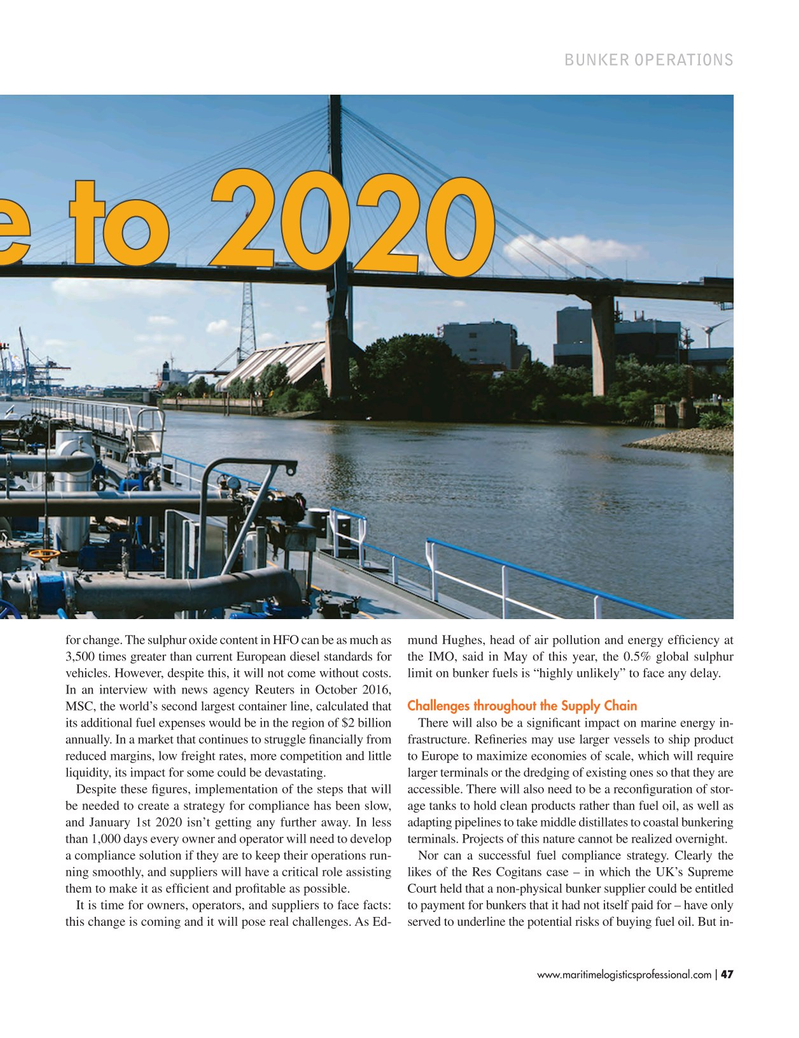
Page 47: of Maritime Logistics Professional Magazine (May/Jun 2017)
BUNKER OPERATIONS & PORTS
Read this page in Pdf, Flash or Html5 edition of May/Jun 2017 Maritime Logistics Professional Magazine
BUNKER OPERATIONS t o e t u 2 o 0
R 2 e 0 h
T for change. The sulphur oxide content in HFO can be as much as mund Hughes, head of air pollution and energy effciency at 3,500 times greater than current European diesel standards for the IMO, said in May of this year, the 0.5% global sulphur vehicles. However, despite this, it will not come without costs. limit on bunker fuels is “highly unlikely” to face any delay.
In an interview with news agency Reuters in October 2016,
MSC, the world’s second largest container line, calculated that Challenges throughout the Supply Chain its additional fuel expenses would be in the region of $2 billion There will also be a signifcant impact on marine energy in- annually. In a market that continues to struggle fnancially from frastructure. Refneries may use larger vessels to ship product reduced margins, low freight rates, more competition and little to Europe to maximize economies of scale, which will require liquidity, its impact for some could be devastating. larger terminals or the dredging of existing ones so that they are
Despite these fgures, implementation of the steps that will accessible. There will also need to be a reconfguration of stor- be needed to create a strategy for compliance has been slow, age tanks to hold clean products rather than fuel oil, as well as and January 1st 2020 isn’t getting any further away. In less adapting pipelines to take middle distillates to coastal bunkering than 1,000 days every owner and operator will need to develop terminals. Projects of this nature cannot be realized overnight. a compliance solution if they are to keep their operations run- Nor can a successful fuel compliance strategy. Clearly the ning smoothly, and suppliers will have a critical role assisting likes of the Res Cogitans case – in which the UK’s Supreme them to make it as effcient and proftable as possible. Court held that a non-physical bunker supplier could be entitled
It is time for owners, operators, and suppliers to face facts: to payment for bunkers that it had not itself paid for – have only this change is coming and it will pose real challenges. As Ed- served to underline the potential risks of buying fuel oil. But in- www.maritimelogisticsprofessional.com 47
I

 46
46

 48
48
